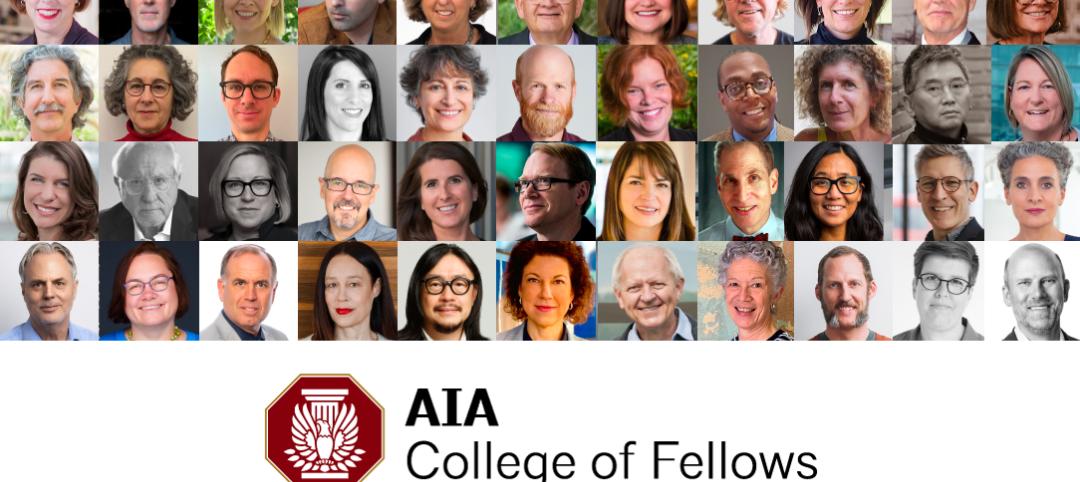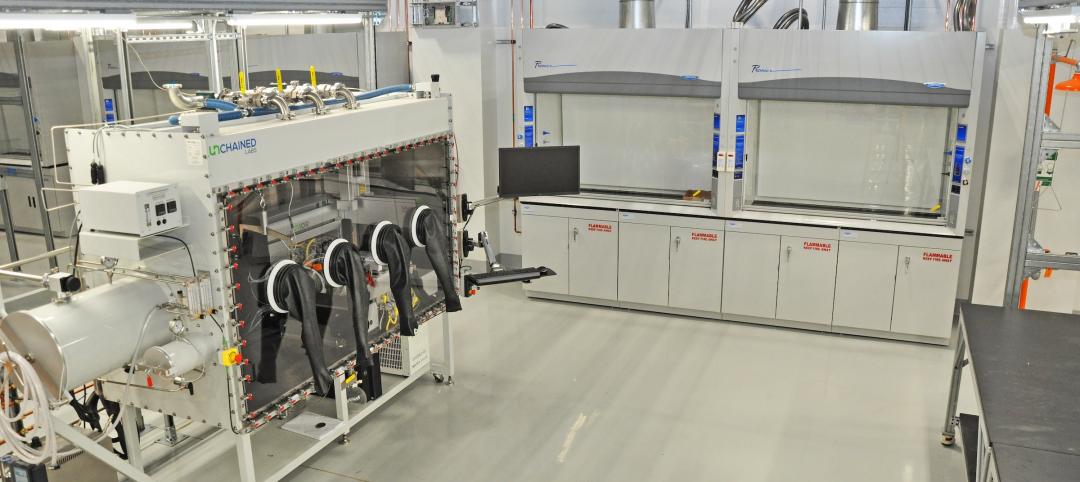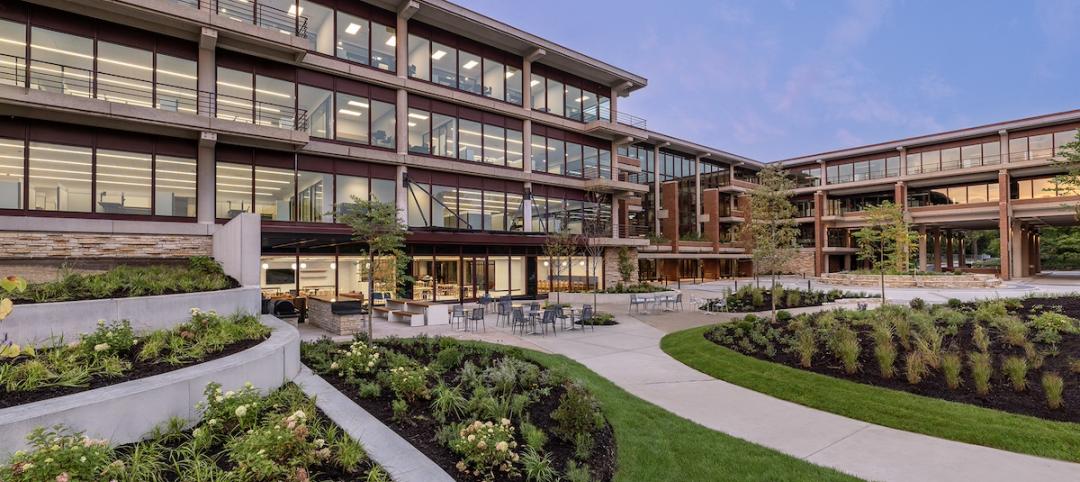The architecture profession continues to grow along with a gradually recovering economy, based on the results of the 2014 Survey of Architectural Registration Boards, conducted by the National Council of Architectural Registration Boards (NCARB).
The 2014 survey of U.S. jurisdictions indicates that there are 107,581 architects in the United States, a 1.6 percent increase from 2013. The number of architects has grown 3.1 percent since 2011.
“Our survey documents an architecture profession that is thriving,” said Michael J. Armstrong, CEO of NCARB. “NCARB will continue to spearhead changes in architectural licensing standards to support a growing architecture industry.”
Recent Bureau of Labor Statistics data also points to growing opportunities for architects in the American economy. Architectural and engineering services added 5,000 new jobs in September and 2,900 new jobs in October.
All states, the District of Columbia, Guam, Puerto Rico, and the U.S. Virgin Islands require individuals to be licensed (registered) before they may call themselves architects or contract to provide architectural services. Data collected for the fall 2014 Survey of Registration Boards are from all 54 U.S. jurisdictions and reflect registration levels from July 2013 through June 2014.
To become licensed, most jurisdictions require a professional degree in architecture and completion of an internship program. NCARB’s Intern Development Program (IDP) is a comprehensive program to provide interns with the knowledge and skills needed to practice architecture. All jurisdictions require completion of the Architect Registration Examination (ARE). Most states also require continuing education to maintain a license.
NCARB assists registration boards by leading the development and application of licensing standards and the credentialing of architects. The NCARB Certificate program is a program that allows architects to expedite reciprocity – the ability to offer architectural services in different jurisdictions after earning an initial license.
As part of the survey report, NCARB also compiles its own data on the number of reciprocal licenses earned each year, reporting 119,200 reciprocal licenses in 2014. That is down slightly—about 2 percent—from the previous year. “As the economy improves, NCARB suspects that many architects are finding new projects close to home without having to go to other jurisdictions,” Armstrong said. “We’ll keep an eye on this indicator as the economy moves forward.”
In total, the NCARB 2014 Survey reports that the 107,581 architects hold 226,181 licenses nationally. California reported the highest number of resident architects, at 16,618 total professionals, as well as the highest number of total registrations (resident plus reciprocal licenses) at 20,595.
Related Stories
Office Buildings | Mar 8, 2024
Conference room design for the hybrid era
Sam Griesgraber, Senior Interior Designer, BWBR, shares considerations for conference room design in the era of hybrid work.
Architects | Mar 8, 2024
98 architects elevated to AIA's College of Fellows in 2024
The American Institute of Architects (AIA) is elevating 96 member-architects and 2 non-member-architects to its College of Fellows, an honor awarded to architects who have made significant contributions to the profession. The fellowship program was developed to elevate architects who have achieved a standard of excellence in the profession and made a significant contribution to architecture and society on a national level.
Sports and Recreational Facilities | Mar 7, 2024
Bjarke Ingels’ design for the Oakland A’s new Las Vegas ballpark resembles ‘a spherical armadillo’
Designed by Bjarke Ingels Group (BIG) in collaboration with HNTB, the new ballpark for the Oakland Athletics Major League Baseball team will be located on the Las Vegas Strip and offer panoramic views of the city skyline. The 33,000-capacity covered, climate-controlled stadium will sit on nine acres on Las Vegas Boulevard.
Adaptive Reuse | Mar 7, 2024
3 key considerations when converting a warehouse to a laboratory
Does your warehouse facility fit the profile for a successful laboratory conversion that can demand higher rents and lower vacancy rates? Here are three important considerations to factor before proceeding.
Shopping Centers | Mar 7, 2024
How shopping centers can foster strong community connections
In today's retail landscape, shopping centers are evolving beyond mere shopping destinations to become vibrant hubs of community life. Here are three strategies from Nadel Architecture + Planning for creating strong local connections.
Market Data | Mar 6, 2024
Nonresidential construction spending slips 0.4% in January
National nonresidential construction spending decreased 0.4% in January, according to an Associated Builders and Contractors analysis of data published today by the U.S. Census Bureau. On a seasonally adjusted annualized basis, nonresidential spending totaled $1.190 trillion.
MFPRO+ Special Reports | Mar 6, 2024
Top 10 trends in senior living facilities for 2024
The 65-and-over population is growing faster than any other age group. Architects, engineers, and contractors are coming up with creative senior housing solutions to better serve this burgeoning cohort.
Architects | Mar 5, 2024
Riken Yamamoto wins 2024 Pritzker Architecture Prize
The Pritzker Architecture Prize announces Riken Yamamoto, of Yokohama, Japan, as the 2024 Laureate of the Pritzker Architecture Prize, the award that is regarded internationally as architecture’s highest honor.
Office Buildings | Mar 5, 2024
Former McDonald’s headquarters transformed into modern office building for Ace Hardware
In Oak Brook, Ill., about 15 miles west of downtown Chicago, McDonald’s former corporate headquarters has been transformed into a modern office building for its new tenant, Ace Hardware. Now for the first time, Ace Hardware can bring 1,700 employees from three facilities under one roof.
Green | Mar 5, 2024
New York City’s Green Economy Action Plan aims for building decarbonization
New York City’s recently revealed Green Economy Action Plan includes the goals of the decarbonization of buildings and developing a renewable energy system. The ambitious plan includes enabling low-carbon alternatives in the transportation sector and boosting green industries, aiming to create more than 12,000 green economy apprenticeships by 2040.

















